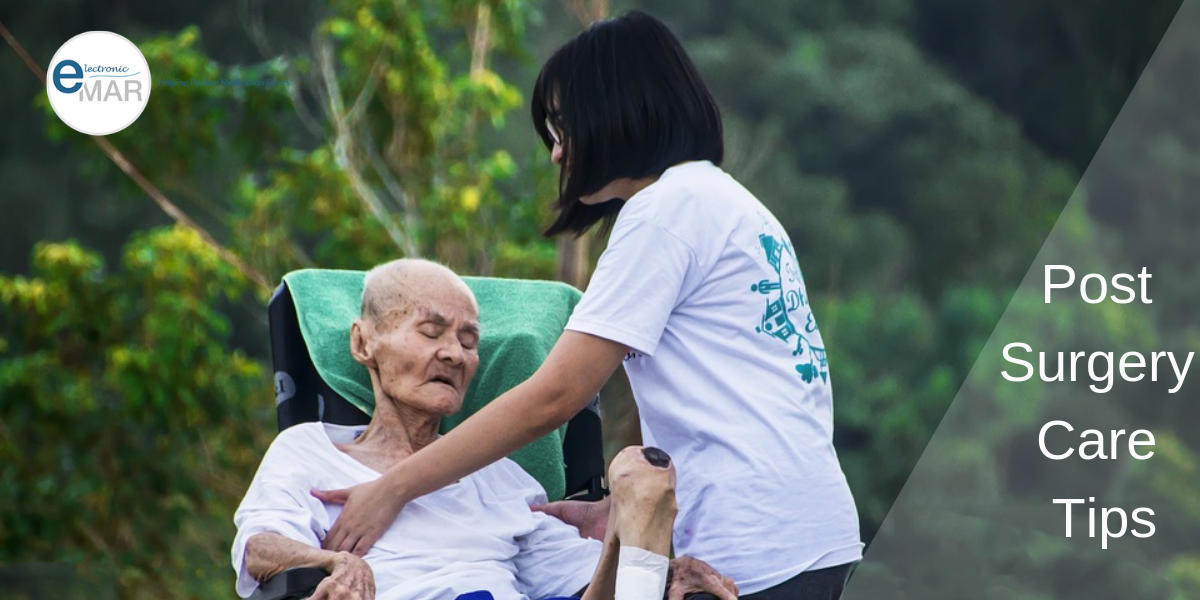Recovering from surgery can be a not-so-pleasant experience for a patient. However, as an elderly caregiver, you have to extend extensive professional care to ensure the healing process is smooth. The challenges of post-operative recovery care and ensuring that normalcy is back in a resident’s life requires a different approach.
Here are a few tips that can help you promote post-operative healing and improve the resident’s overall health:
- Plan ahead: You can make your resident’s recovery a lot smoother if you take a little time to plan ahead. Depending upon the kind of surgery a patient had, you can prepare the physical environment to support the post-surgery needs. If your resident needs special gear like crutches, oxygen tanks, elevated toilets, shower seats, make sure you equip the room with those.
- Personalised tailored care: Post-surgery there may be a need for re-dressing wounds, special supplies, medications, pain management, catheter, and colostomy bag maintenance. All these needs must be kept in mind and personalised care must be provided. As a caregiver, it is important that you keep a close contact with the resident’s doctor so that you can if there’s any problem at any point in time contact him or her.
- Minimise disruption: Post-surgery often patients are susceptible to infections and, therefore, it is important to minimise the disruption in the room of the patient concerned. People often get dizzy and irritable after being in bed for days. Anything like bright lights and too many people can be bothersome for the patient.
- Physical therapy: Physical therapy is an essential component of post-operative rehabilitation. It helps regain mobility and enhance the healing process. Depending upon the surgery and physical capabilities, you can introduce physical therapy as part of the resident’s daily care.
- Resuming to normal activities: Surgery is not just physically difficult but also emotionally tough. It is good for residents’ emotional well-being that they return to regular activity levels. For this, start gradually taking them to activities that they used to be part of. Don’t overdo as it can be quite exerting. Go slow and take one activity or two at a time.
- Medication: From patient to patient, medicines used before, during, and after the surgery may change. As a caregiver ensure that there’s an overall review of the mar sheet medication of the patient and no one medicine is prescribed twice. Take help of electronic mar charts to streamline the process.
Improve the quality of care in your care home using eMAR
For care home staff, caring for a resident post-surgery can be quite overwhelming. To devote time for personal care to the residents, switch to electronic MAR, a smart alternative to paper MAR sheets. With electronic MAR charts, you can put an end to manually managing MAR sheets. eMAR streamlines medication administration and gives you time to give quality senior citizen health care. To learn more about eMAR, visit https://www.electronicmar.co.uk.







